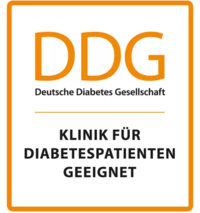Gastroenterology in Germany – treatment in the Best Hospitals
Here you will find most technologically advanced gastroenterological hospitals in Germany
Focus of treatment:
- Acute pancreatitis with pancreonecrosis
- Appendix cancer
- Bile Duct Fistula
- Bile duct inflammation
- Bile duct obstruction
- Bile duct stones
- Cholangiocarcinoma (Klatskin tumor)
- Chronic pancreatitis
- Colon cancer
- Constipation
- Crohns disease
- Diverticulitis
- Duodenal cancer
- Duodenal diverticulum
- Duodenal stenosis
- Duodenal ulcer
- Duodenitis
- Esophageal cancer
- Esophageal Stenosis
- Esophageal ulcer
- Esophageal varices
- Gastric malt lymphoma
- Gastric polyps
- Gastritis
- Gastrointestinal carcinoid tumors
- Hiatal hernia (hiatus hernia)
- Inflammatory bowel disease
- Liver abscess
- Liver Cirrhosis
- Liver fibrosis
- Liver necrosis
- Mallory weiss syndrome
- Meckels diverticulum
- Neuroendocrine tumors (NETs)
- Pancreatic cancer
- Pancreatic cyst
- Pancreatic pseudocyst
- Pyloric stenosis
- Pylorus obstruction
- Rectal cancer
- Reflux esophagitis (GERD)
- Stomach cancer
- Stomach ulcer (peptic ulcer)
- Ulcerative colitis
- Zollinger–Ellison Syndrome Show more

Department of Gastroenterology, Hepatology and Infectology
The Department of Gastroenterology, Hepatology and Infectology offers the widest range of diagnostic examinations and treatments for patients with diseases of the gastrointestinal tract, liver, biliary tract, as well as infectious diseases. The department operates the specialized Endoscopy Center, which serves for diagnostic and





Department of Gastroenterology, Hepatology and Infectology
The Department of Gastroenterology, Hepatology and Infectology offers the full range of diagnostics and treatment of diseases of the liver, pancreas, and other organs of the gastrointestinal tract. In addition, of particular interest is the treatment of cancer pathologies of the esophagus, stomach, intestines, pancreas and liver





Department of Gastroenterology and Hepatology
The Department of Gastroenterology and Hepatology offers the full range of medical services in the areas of its specialization. The department's doctors carry out the prevention, diagnostics, and treatment of diseases of the gastrointestinal tract, including the liver, gallbladder, biliary tract, esophagus, and pancreas. Dia





Diseases of the digestive system worsen the quality of life of a person, and some of them even pose a danger to life. The doctors of the gastroenterology clinics in Germany successfully cope with most pathologies. They either cure the disease completely or bring the pathology under control by eliminating all its symptoms. German medical centers treat most gastrointestinal pathologies using conservative or minimally invasive procedures.
Content
- What diseases can be treated in Germany?
- Diagnostics of gastrointestinal diseases
- Treatment methods in gastroenterology
- Why is it worth undergoing treatment in Germany?
Diet, drugs, physiotherapy, endoscopic procedures, and, less commonly, percutaneous procedures or surgery treat gastroenterological diseases.
You can undergo your treatment in the following hospitals: University Hospital Duesseldorf, University Hospital of Ludwig Maximilian University of Munich, or Helios Hospital Berlin-Buch.
You do not have to solve any organizational issues yourself, as the employees of the Booking Health company will organize your trip. The company’s specialists will help you choose a clinic and a treatment method, make an appointment for you, translate your medical records into German, take care of your flights and accommodation, and provide insurance and interpreting services. The company’s specialists will also stay in touch with you 24/7.
What diseases can be treated in Germany?
German gastroenterologists deal with treating diseases of the esophagus, stomach, small and large intestines, liver, gallbladder, and pancreas. The specialists mainly use conservative treatment methods. Should surgery be required, a patient will be referred to the Department of Surgery. Minimally invasive endoscopic interventions are performed by gastroenterologists.
Most often, the patients with the following diseases opt for gastroenterology treatment in Germany:
- Crohn's disease;
- non-specific ulcerative colitis;
- colon polyps;
- reflux esophagitis;
- pancreatitis;
- cholelithiasis and choledocholithiasis;
- cholecystitis;
- esophageal and pyloric stenosis;
- cirrhosis;
- gastric and duodenal ulcers.
The patient often does not yet have an established diagnosis when seeking medical attention. He travels to Germany to undergo the diagnostics and the follow-up treatment. As a rule, the hospitals in Germany admit patients with symptoms such as jaundice, persistent heartburn, abdominal pain, nausea, constipation or diarrhea, and pathological impurities in the feces.
Diagnostics of gastrointestinal diseases
It is tough to diagnose a digestive system disease based only on its symptoms since the clinical signs in different pathologies are often the same. For example, suppose a person with abdominal pain is seeking medical care. Anything can hurt the intestines, stomach, pancreas, gallbladder, and organs outside the digestive system (for example, the heart, spine, and ovaries).
Gastroenterology doctors in Germany use laboratory tests and instrumental examinations to make a diagnosis. German hospitals offer all the most modern diagnostic procedures:
- upper endoscopy involves the insertion of a tiny video camera into the esophagus, stomach, and duodenum to examine them;
- biopsy, pH impedance testing (acidity measurement), and manometry (pressure measurement) are performed during an upper endoscopy if required;
- double-balloon enteroscopy is used to examine the small intestine;
- capsule endoscopy is a diagnostic procedure in which a person swallows a capsule with a video camera, which makes many images when passing through the gastrointestinal tract;
- ultrasound, CT, and MRI scans are used for examining the liver, gallbladder, and pancreas;
- endoscopic ultrasound is a more accurate diagnostic examination, as it is carried out from the inside of the digestive system;
- dynamic hepatobiliary scintigraphy is a radionuclide diagnostic method for assessing the function of the liver and biliary system;
- endoscopic retrograde cholangiopancreatography (ERCP) allows for the examination of the bile and pancreatic ducts from the inside with the use of endoscopic equipment;
- magnetic resonance cholangiopancreatography is a non-invasive examination of the bile and pancreatic ducts using MRI scanning, which replaces ERCP (except when endoscopic manipulations for therapeutic purposes are required).
Treatment methods in gastroenterology
German gastroenterologists use the following treatments for gastrointestinal diseases:
- diet;
- drug therapy;
- therapeutic endoscopic procedures that are performed from the inside of the esophagus, stomach, duodenum, bile and pancreatic ducts, or colon;
- percutaneous procedures that are performed through a skin puncture.
Although some gastrointestinal conditions may require surgical interventions, gastroenterologists do not perform them themselves. If a person needs gallbladder removal surgery, an anti-reflux intervention, or medical care for the complications of Crohn's disease, etc., then surgeons are involved in the treatment process. In Germany, most surgical interventions are performed using a minimally invasive laparoscopic technique. In addition, more and more often, doctors prefer to perform minimally invasive percutaneous or endoscopic manipulations instead of conventional operations through the abdominal incisions.
Why is it worth undergoing treatment in Germany?
If you suffer from gastrointestinal diseases, undergoing your treatment in gastroenterology clinics in Germany will be a perfect choice. There are a few reasons for you to choose this country for your treatment:
- doctors are distinguished by their high level of medical competence;
- accurate diagnostics: the healthcare professionals in Germany will not treat any non-existent diseases for years, as is often the case in countries with poorly developed medicine;
- you will benefit from the comfortable treatment without any pain and any significant discomfort;
- innovative medicines;
- modern minimally invasive treatment: endoscopic and percutaneous procedures instead of surgical interventions;
- if the patient requires the surgical intervention, then it will be performed with the use of laparoscopic techniques, that is, through short incisions, which reduces the recovery period;
- safe paediatric gastroenterology.
The Booking Health company specialists will help you choose the most suitable clinic specializing in gastroenterology in Germany and take care of your travel arrangements. You are kindly welcome to book your medical care program through the Booking Health service: prices will be lower for you, as the cost of medical services is reduced due to the lack of coefficients for foreign patients.
Authors:
The article was edited by medical experts, board certified doctors Dr. Vadim Zhiliuk and Dr. Sergey Pashchenko. For the treatment of the conditions referred to in the article, you must consult a doctor; the information in the article is not intended for self-medication!
Sources:

